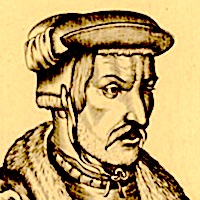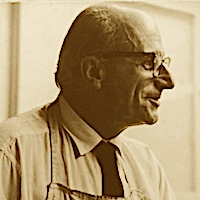

Tao Te Ching

Agrippa
(Heinrich Cornelius Agrippa von Nettesheim)
1486 – 1535 CE
Historian of the occult and early, important influence on science
Physician, soldier, polymath, theologian, and the most important magic occultist of his age; Agrippa pushed hard on the ideological and religious belief boundaries of his time and, as a consequence, found himself at odds with inquisitors, banished, imprisoned, and continually threatened. His books shifted historical trends. One attacking the contemporary state of science influenced writers like Goethe, Montaigne, and Descartes. A book he wrote in 1529 argued for the moral and spiritual superiority of women and his 3-volume Occult Philosophy (printed 1531-1533) became a foundational resource for Occultists then and now. In Mary Shelley's famous novel, his writing are described as a major influence on the young Victor Frankenstein and he's similarly cited in works by Christopher Marlowe, Søren Kierkegaard, and J. K. Rowling.
Lineages
Central European Scientists Shamanistic
Eras
Western
Renaissance (1304 – 1576 CE)Chinese
Ming dynasty (1368 – 1644 CE)Unlisted Sources
Female Pre-eminence
The Vanity of Arts and Sciences
Three Books of Occult Philosophy or Magic
Quotes by Agrippa (7 quotes)
“Magic is a powerful faculty, full of mystery and comprising a profound knowledge of the most secret thing, their nature, power, quality, substance and effects.. It is a philosophical science; it is physics, mathematics, and theology.”
from Three Books of Occult Philosophy or Magic
Comments: Click to comment
“Religion is the most mysterious thing and one about which one should keep silent... it would be an offense to religion to confide it to the profane multitude.”
from Three Books of Occult Philosophy or Magic
Comments: Click to comment
“Though man is not an immortal animal, like the universe, he is nonetheless reasonable, and with his intelligence, his imagination and his soul, he can act upon and transform the whole world.”
from Three Books of Occult Philosophy or Magic
Comments: Click to comment
“Natural Magick is the chief power of all the natural Sciences; the top, perfection, and active part of Natural Philosophy; which by the assistance of natural forces and faculties, through their mutual & opportune application, performs those things that are above Human Reason.”
from The Vanity of Arts and Sciences
Comments: Click to comment
“No one who is not utterly blind can fail to see that God gathered all the beauty of which the whole world is capable of in woman. Woman far excels Man. Woman was not composed of any inanimate or vile dirt, but of a more refined and purified substance, enlivened and actuated by a Rational Soul, whose operations speak it a beam, or bright ray of Divinity.”
from Female Pre-eminence
Comments: Click to comment
“The meaning we have dispersed in various places and gathered again; what we have concealed in one place we have disclosed in another, that it may be understood by your wisdom.”
from Three Books of Occult Philosophy or Magic
Comments: Click to comment
“All sciences are only the ordinances and opinions of men, as injurious as profitable, as pestilent as wholesome, as ill as good, in no part perfect, but doubtful and full of error and contention.”
Comments: Click to comment
Quotes about Agrippa (2 quotes)

“Perhaps the most important figure among the occultists of that age... [Agrippa] knows the language of the angels and their names as well as those of the star spirits, those of the elements, and those of the four corners of the world.”
Comments: Click to comment

“The legend of Faust came to bitter life in Henry Cornelius Agrippa... he learned that no magic or alchemy could feed his family or keep him out of jail for debt. He wrote at the age of 39 the most skeptical book of the the 16th century before Montaigne and probably had a share in forming Montaigne's skepticism.”
Comments: Click to comment
Comments (0)